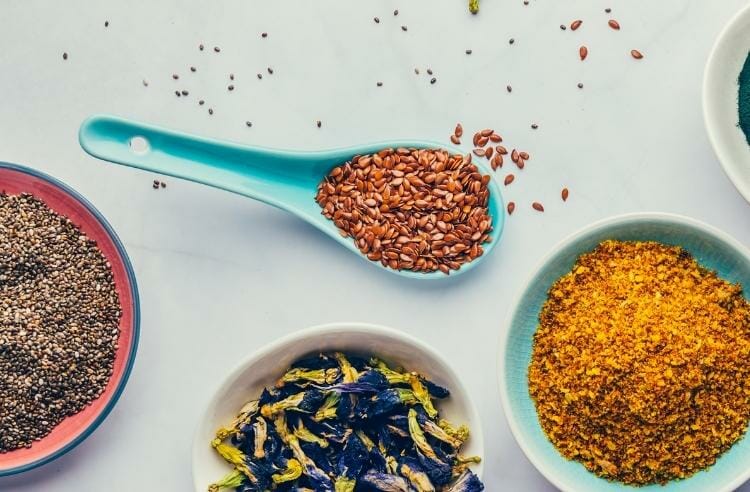
- Functional Food for your Genes
-
by k.mammasis
Foods for Vitamin B12 are on the rise and there is a good reason for it. There is no doubt that vitamin B12 is an exceptional vitamin that your body can’t make on its own, so you need to source it elsewhere. The only trustworthy vegan sources of B12 are functional foods and supplements. Are you still wondering why functional foods are your best source? Read our latest article on the comparison between natural vs synthetic nutrients, why our functional foods outperform supplements, and will improve your overall health in less than 3 months.
Vegan B12 Sources
Vitamin B12 isn’t naturally found in plant-based foods. So if you are vegan, you should somehow account for a reliable source of vitamin B12. Whether in supplements, fortified foods, or animal products, vitamin B12 comes from micro-organisms and is needed to power up your body. Its absence may lead to anaemia and nervous system damage, among other health conditions 1 2 3. Here are 5 top vegan foods for vitamin B12 to add to your shopping list:
1. Pomegranate Concentrate with Vitamin B12
It is our top fortified functional food for mood and energy. A 10 ml serving of this delicious product provides 20 micrograms of B12, 80mg of Calcium, 200mg of Potassium, 300mg of Polyphenols, 3 mg of Magnesium, ellagic acid and an unparalleled taste that will take your juices, smoothies, salads or yogurt to a new functional nutrition level. We encourage you to read more on the product page.
What Makes our Formula so Unique
Our pomegranate concentrate fortified with cyanocobalamin is produced by fermentation using the strains Pseudomonas denitrificans or Ensifer adhaerens. It has already helped many of our customers, as a top food for mood and energy boost. There is a good argument for why fortification of vitamin B12 is necessary. We live much more sanitary lives now (thanks to food safety!), which means we are not getting vitamin B12 from bacteria as we might have done historically when water supplies were less sanitary.
People can become deficient in vitamin B12 despite having adequate intake in the diet because they might have troubles absorbing it. Vitamin B12 is absorbed in the lower part of the small intestine but can only be absorbed if a special carrier protein called intrinsic factor is present. Deficiency of vitamin B12 could develop not just from insufficient B12 in the diet, but also from insufficient amounts of intrinsic factor; this could occur from several conditions relating to the digestive system.
Our Pomegranate Concentrate with Vegan Vitamin B12 is among our best synergy functional foods, providing you with the best combination of natural enzymes, coenzymes and activators to assist during absorption in the gut. All in one, and with an incredible taste and texture that will transform your experience of food vitamins. You may add it to your cart now and have it shipped to your doorstep by visiting our online healthy food store.
2. Fortified Nutritional Yeast
Nutritional yeast is a great vegan source of protein, vitamins, and minerals. It’s a species of yeast specifically grown to be used as food that provides a savory flavor. However, nutritional yeast does not naturally contain vitamin B12, so it must be fortified if it is to be used as a dietary source 4. Nutritional yeast is manufactured to provide protein, vitamins, and minerals. A 10-gram serving of fortified nutritional yeast provides 15 micrograms of vitamin B12 4.
3. Fortified Non-Dairy Milk
Non-dairy milk, like almond, soy, oat, or cashew milk, don’t naturally have vitamin B12. Often they are fortified to provide multiple vitamins and minerals. For example, 8 ounces of fortified almond milk provides 3 micrograms of vitamin B12 4.
4. Fortified Cereal
Cereal are often fortified during processing to provide extra vitamins and minerals, such as folic acid and vitamin B12. In one and a half cups of fortified ready-to-eat cereal, there is about 1.5 micrograms of vitamin B12 4.
Vegetarian B12 Sources
Milk and other dairy products, such as yogurt and cheese, are great sources of protein and several vitamins and minerals, including vitamin B12. So here are a couple of great common foods to consider for micro-dosing with vitamin B12.
1. Milk and Dairy Products
One cup (240 ml) of whole milk supplies 46% of the DV for vitamin B12 (28Trusted Source). Cheese is also a rich source of vitamin B12. One large slice (22 grams) of Swiss cheese contains about 28% of the DV (29Trusted Source). Full-fat plain yogurt may also be a decent source. It has even been shown to help improve vitamin B12 status in people who are deficient in this vitamin 4.
2. Eggs
Eggs are a great source of complete protein and B vitamins, especially B2 and B12. Two large eggs (100 grams) supply about 46% of the DV for vitamin B12, plus 39% of the DV for vitamin B2 (35Trusted Source). Research has shown that egg yolks have higher levels of vitamin B12 than egg whites. The B12 in egg yolks is also easier to absorb. Therefore, it’s recommended to eat whole eggs instead of just their whites 4.
In addition to getting a good dose of vitamin B12, you’ll get a healthy amount of vitamin D. Eggs are one of the few foods that naturally contain it, with 11% of the DV in two large eggs 4.
Summary
Vitamin B12 is a key nutrient that your body needs for many essential functions. It’s found in large amounts in animal products, functional foods, and dietary supplements. Functional foods are definitely the products that you should invest in, if you are ready to join us on a life-changing preventative nutrition program. Our pomegranate concentrate is an excellent functional food for mood and energy boost, but goes far beyond its basic health claims. Visit our online healthy food store and discover more about this or the rest of our functional nutrition products.
A Word From MILESTONE®
MILESTONE® Food for your Genes uses only high-quality sources, including peer-reviewed studies, to support the facts within our articles. Read our editorial process to learn more about how we fact-check and keep our content accurate, reliable, and trustworthy.
- U.S. Department of Health & Human Services[↩]
- Shipton MJ, Thachil J. Vitamin B12 deficiency – a 21st century perspective. Clin Med (Lond). 2015;15(2):145-150. doi:10.7861/clinmedicine.15-2-145[↩]
- Allen LH. Vitamin B-12. Adv Nutr. 2012;3(1):54-55. doi:10.3945/an.111.001370[↩]
- Department of Agriculture, FoodData Central[↩][↩][↩][↩][↩][↩][↩]
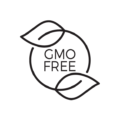
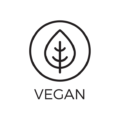
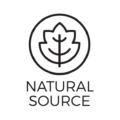

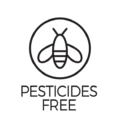








of dreams and knowledge
05/08/2022 at 09:22Correctly said! The same applies to omega 3 sources and algae. People typically consume omega-3 fish-based oils instead of going directly to the source, i.e. algae. Smaller fish eat it, and it travels up the food chain from there. So why don’t we choose to go directly to the purest source of omega-3s originating from algae instead of the fish oil derivatives? More people are beginning to understand this. Read more on: How we Got to the Best Foods for Omega 3 in the Market. surely, you will enjoy this one too.